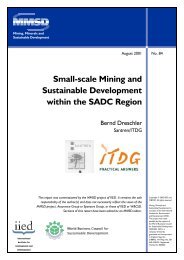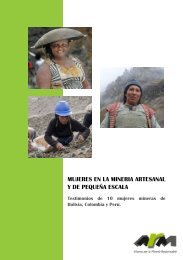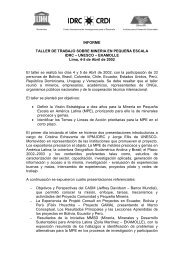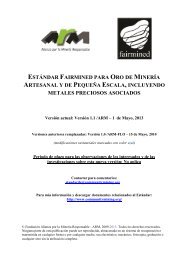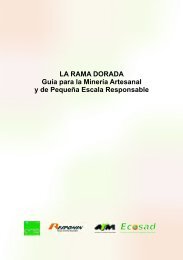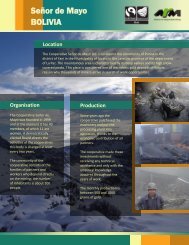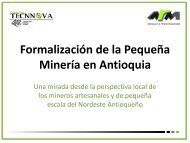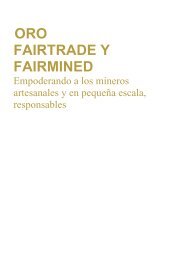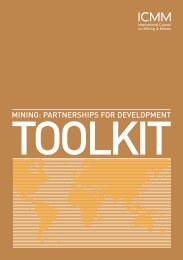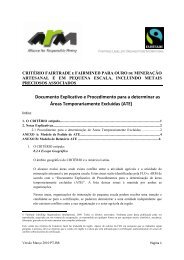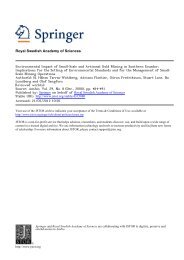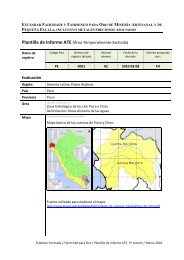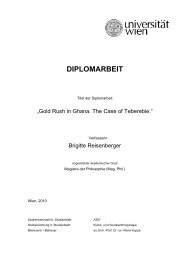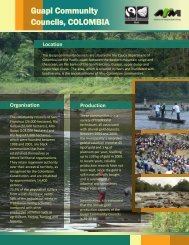A Poisonous Mix - Human Rights Watch
A Poisonous Mix - Human Rights Watch
A Poisonous Mix - Human Rights Watch
Create successful ePaper yourself
Turn your PDF publications into a flip-book with our unique Google optimized e-Paper software.
Trafficking in persons is prohibited under international law. 70 Having a slightly broader<br />
scope than trafficking in adults, trafficking in children is defined as “the recruitment,<br />
transportation, transfer, harboring or receipt of a child for the purpose of exploitation.” 71<br />
Exploitation includes “at a minimum, the exploitation of the prostitution of others or other<br />
forms of sexual exploitation, forced labor or services, slavery or practices similar to slavery,<br />
servitude, or the removal of organs.” 72 Trafficking of children is also classified as a worst<br />
form of child labor. 73<br />
International <strong>Human</strong> <strong>Rights</strong> Obligations of Businesses<br />
Although governments have the primary responsibility for promoting and ensuring respect<br />
for human rights, private entities such as companies have human rights responsibilities as<br />
well. This basic principle has achieved wide international recognition and is reflected in<br />
international norms, most recently with the adoption of the Guiding Principles on Business<br />
and <strong>Human</strong> <strong>Rights</strong> by the UN <strong>Human</strong> <strong>Rights</strong> Council in June 2011. 74<br />
The Guiding Principles were elaborated by John Ruggie, former United Nations’ special<br />
representative of the secretary general on the issue of human rights and transnational<br />
corporations and other business enterprises. The Principles lack guidance with regards to<br />
government regulation of companies’ human rights impacts and have failed to call for<br />
mandatory monitoring and reporting of companies’ human rights impacts. Nonetheless,<br />
they serve as a useful guide to many of the human rights obligations of businesses and of<br />
the governments that oversee their activities. The Principles place particular emphasis on<br />
the concept of human rights due diligence—the idea that companies must have a process<br />
to identify, prevent, mitigate, and account for their impact on human rights. According to<br />
the Guiding Principles, corporations should monitor their impact on an ongoing basis and<br />
have processes in place that enable the remediation of adverse human rights impacts they<br />
cause or to which they contribute. 75<br />
70 Trafficking Protocol, art. 2; CRC, African Charter on the <strong>Rights</strong> and the Wellbeing of the Child, art. 29.<br />
71 Trafficking Protocol, art. 3(c).<br />
72 Trafficking Protocol, art. 3(a).<br />
73 Worst Forms of Child Labor Convention, art. 3(a).<br />
74 United Nations <strong>Human</strong> <strong>Rights</strong> Council, “Report of the Special Representative of the Secretary-General on the issue of<br />
human rights and transnational corporations and other business enterprises, John Ruggie: Guiding Principles on Business<br />
and <strong>Human</strong> <strong>Rights</strong>: Implementing the United Nations “Protect, Respect and Remedy” Framework,” A/HRC/17/31, March 21,<br />
2011, http://www.ohchr.org/documents/issues/business/A.HRC.17.31.pdf (accessed August 11, 2011), principle 12. There is,<br />
however, as yet no shared understanding of the full scope of businesses’ human rights responsibilities, whether these are or<br />
should be binding under international law, and if so, how they can best be enforced.<br />
75 Ibid., principles 15-24.<br />
A POISONOUS MIX 26



